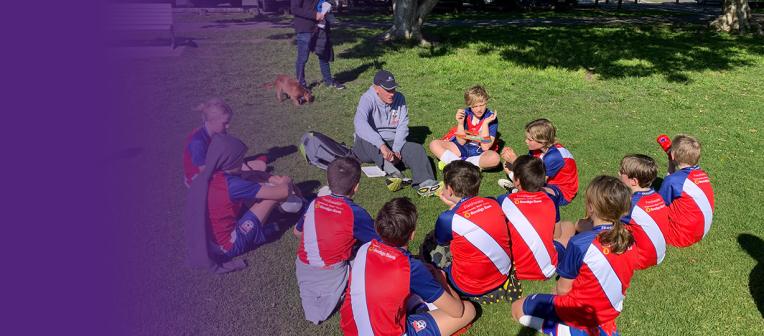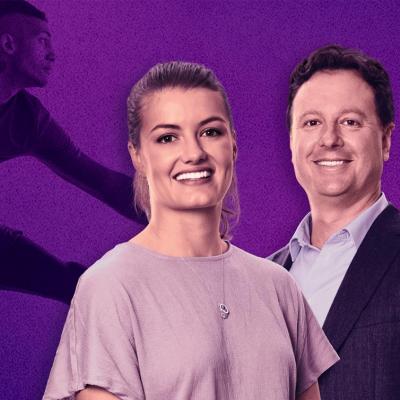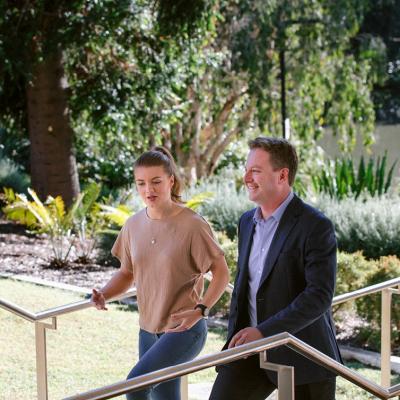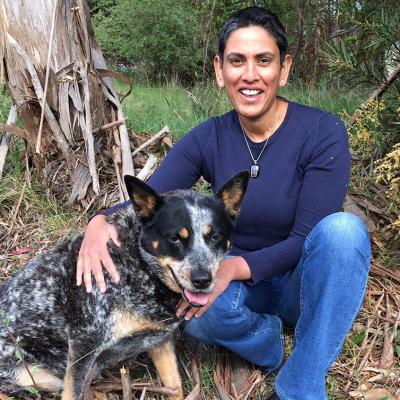Wondering if postgrad study could help improve your game? Michael O’Keeffe, a Master of Sports Coaching graduate and Adjunct Senior Research Fellow in Sports Coaching at UQ, discusses how to be a better sports coach.
Over a decade ago, I took on the role as coach for my son’s U16 football team. While this was a rewarding experience for the main part, there were also moments of utter frustration – I think most coaches would agree that coaching is a rewarding yet challenging job.
The team performed well in most of their games (often beating their key rivals), but I always felt like I wasn’t quite being the best coach I could be. Though I had the tactical skills to teach the game and led them to victory on many occasions, I knew deep down that I couldn’t take this as an indicator that I was being a “good coach”.
After some self-reflection, I realised I still had a lot to learn to help me be the best coach I could be. I decided to take some time for self-development – including enrolling in the Master of Sports Coaching – and I can honestly say this was one of the best decisions I made for my coaching career.
Here are 5 things I’ve learned that have helped me be a better coach.
1. Pay attention to the little things
It’s important to pay attention to the critical ‘little’ things, like investing equal time chatting with all players, rather than drifting into spending more time with the better players.
My coaching behaviour evolved from simply shouting instructions to focusing on observation, followed by discussions with each individual player. I learnt the importance of giving feedback in a way that supported a growth mindset instead of a fixed mindset. There are creative ways – such as the use of body language – of giving positive and constructive feedback.

In Michael’s team, every player gets equal time to chat with the coach – and equal access to the snacks.
After a frustrating 1-4 loss, the theme of the post-match chat was ‘do we train to play or play to train?’. With some gentle nudging, the players suggested that we could ‘play to train’ with the game providing important information on how to improve our performance. The players then decided that defensive skills, especially pressing-and-defending, and not committing too early to the tackle, was the priority. The following week, the players did the defensive drills willingly for the first time.
2. Learn how to effectively assess performance
Discard the assumption that winning or losing is the only way to assess a team’s performance. The mastery approach shows that performance can and should be assessed in terms of self- or team-improvement, or against the skill itself.
From my personal youth coach perspective, I have found the 4Cs Personal Assets framework valuable. Performance is developing the personal assets of competence, confidence, connection, and character.
- Competence includes social skills and emotional regulation during situations like intense games, as well as football skills.
- For some young players, confidence is knowing that if they continue to train and practice, they will improve as a player.
- Connection includes the relationships players build with each other, reflected in how they play as a team.
- Character is reflected in respect for the game and referee decisions. Character also includes caring for each other, such as support for the goalkeeper who makes a clanger letting in an easy goal.
3. Create the vision within the team
Our U10 team had just suffered a 3-4 loss after being up 3-1 at half-time. The players were disappointed, and then perplexed when I explained to them that they could blame the coach.
At half time, the team was shuffled around so players could develop skills by playing in different positions as part of their development. We leaked a few easy goals, even though we continued to play well as a team.
After some discussion, the players – much to their parents’ surprise – decided they would rather lose a few games, as learning to play in multiple positions was more important than winning all the time. The players, with some coach encouragement, set a team vision with clear development goals and less focus on winning. The team set goals, such as how many successful passes they could string together, as a way of monitoring performance. And the parents totally approved.
4. Take time to reflect
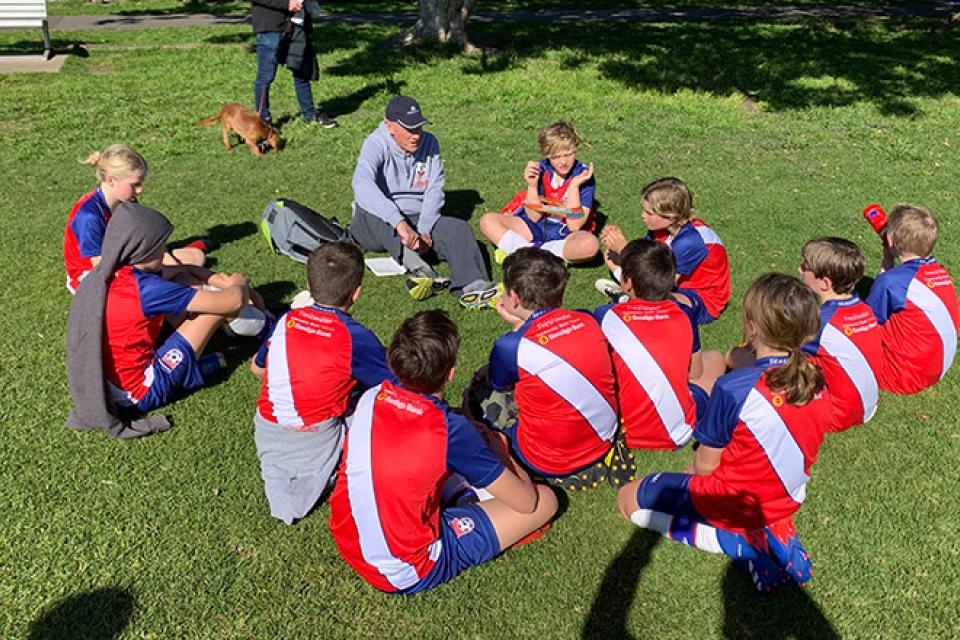
The most significant learning in intra-personal skills was the importance of reflection – especially the difference between reflective practice and critical reflection.
Prior to the Master of Sports Coaching, I used reflective practice to evaluate an event after it had happened. Why did we lose that game and what are the lessons?
Critical reflection is fundamentally different. It involves the process of questioning one’s thought processes with a willingness to change their underlying assumptions.
For example, I had always used competitive drills in practice on the basis that this improved motivation for skill development. In fact, the opposite occurred, as the drills were done at such a frenetic pace that no learning occurred. I learnt that the question to address was the type of motivation, not how much motivation.
5. Invest in your own performance
Just like players and athletes, coaches need to continually hone their skills for positive growth. I like to think of coach learning in terms of two dimensions, namely:
- what to coach
- how to coach.
The ‘what to coach’ area, such as game tactics and the use of different small-sided games, is typically covered to some degree by the relevant national, state and regional sporting bodies.
Given there are coaches across the master’s degree program who come from such a variety of sports and contexts, the focus was certainly more on the ‘how-to-coach’ area. As a result, I have continued to draw on a range of resources including parents, other coaches, sport coaching books, and articles.
Discover how to become a better sports coach with the UQ Master of Sports Coaching.

